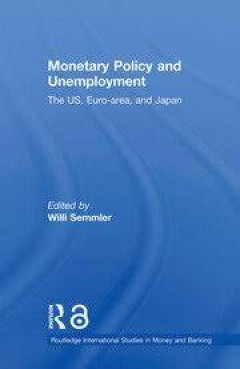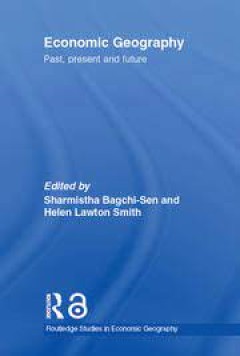Filter by

Universities, Innovation and the Economy
ABSTRACT Universities are increasingly expected to be at the heart of networked structures contributing to society in meaningful and measurable ways through research, the teaching and development of experts, and knowledge innovation. While there is nothing new in universities’ links with industry, what is recent is their role as territorial actors. It is government policy in many countries t…
- Edition
- 1st Edition
- ISBN/ISSN
- 9780203358054
- Collation
- -
- Series Title
- -
- Call Number
- -

The Mechanics of Modernity in Europe and East Asia: Institutional Origins of …
Why, from the eighteenth century onwards, did some countries embark on a path of sustained economic growth, while others stagnated? This text looks at the kind of institutions that are required in order for change to take place, and Ringmar concludes that for sustained development to be possible, change must be institutionalized. Taking a global view, Ringmar investigates the implications of hi…
- Edition
- 1st Edition
- ISBN/ISSN
- 9780203338582
- Collation
- -
- Series Title
- -
- Call Number
- -

Monetary Policy and Unemployment: the US, Euro-area and Japan
This book pulls together papers presented at a conference in honour of the 1981 Nobel Prize Winner for Economic Science, the late James Tobin. Among the contributors are Olivier Blanchard, Edmund Phelps, Charles Goodhart and Marco Buti. One of the main aims of the conference was to discuss what potential role monetary policy has on economic activity and unemployment reduction in three key curr…
- Edition
- 1st Edition
- ISBN/ISSN
- 9780203329580
- Collation
- -
- Series Title
- -
- Call Number
- -

The Changing Economic Geography of Globalization
The process of globalization has had profound, often destabilizing, effects on space, at all levels (i.e. local, regional, national, international). This revealing book analyzes, both theoretically and empirically, the effects of globalization over space. It considers, through a dialogue among different paradigms, the ways in which space has become more important in the global economy. Globa…
- Edition
- 1st Edition
- ISBN/ISSN
- 9780203000403
- Collation
- -
- Series Title
- -
- Call Number
- -

Regional Monetary Policy
With the final phase of the European Monetary Union underway, concern has been raised over the regional implications of the European Central Bank (ECB) Monetary Policy. Departing from the standard approach utilized by the ECB, this book provides a comprehensive theoretical framework to explore the ways through which money and monetary policy may affect regions. Carlos Rodriguez Fuentes, the …
- Edition
- -
- ISBN/ISSN
- 9780203022191
- Collation
- -
- Series Title
- -
- Call Number
- -

Economic Geography: Past, Present and Future
The impact of economic geography both within and beyond the wider field of geography has been constrained in the past by its own limitations. Drawing together the work of several eminent geographers this superb collection assesses the current state of knowledge in the sub discipline and its future direction. In doing so, the contributors show how economic geographers have offered explanations …
- Edition
- -
- ISBN/ISSN
- 9780203020258
- Collation
- -
- Series Title
- -
- Call Number
- -

Ethical Codes and Income Distribution: A Study of John Bates Clark and Thorst…
In contemporary non-mainstream economic debate, it is widely thought that the functioning of a market economy needs a set of rules (i.e. institutions) which bind agents in their behaviour, allowing efficient outcomes. This idea is contrary to the General Equilibrium Model (GEM) where markets are pictured as working in an institutional vacuum and where social and historical variables play no rol…
- Edition
- -
- ISBN/ISSN
- 9780203016794
- Collation
- -
- Series Title
- -
- Call Number
- -

The Clean Hydrogen Economy and Saudi Arabia Domestic Developments and Intern…
This book provides a first-of-its-kind analysis of the emerging global hydrogen economy from the vantage point of one of the world’s biggest energy providers: Saudi Arabia. In 2021, and within the context of the Circular Carbon Economy framework, Saudi Arabia announced its goal to reach net-zero carbon emissions by 2060 and produce a substantial amount of clean hydrogen annually by 2030. The …
- Edition
- -
- ISBN/ISSN
- 9781003294290
- Collation
- -
- Series Title
- -
- Call Number
- -

Justice and the Meritocratic State
Like American politics, the academic debate over justice is polarized, with almost all theories of justice falling within one of two traditions: egalitarianism and libertarianism. This book provides an alternative to the partisan standoff by focusing not on equality or liberty, but on the idea that we should give people the things that they deserve. Mulligan sets forth a theory of economic …
- Edition
- -
- ISBN/ISSN
- 9781315270005
- Collation
- -
- Series Title
- -
- Call Number
- -

Human Rights in Business: Removal of Barriers to Access to Justice in the Eur…
The capacity to abuse, or in general affect the enjoyment of human, labour and environmental rights has risen with the increased social and economic power that multinational companies wield in the global economy. At the same time, it appears that it is difficult to regulate the activities of multinational companies in such a way that they conform to international human, labour and environmental…
- Edition
- -
- ISBN/ISSN
- 9781315269467
- Collation
- -
- Series Title
- -
- Call Number
- -
 Computer Science, Information & General Works
Computer Science, Information & General Works  Philosophy & Psychology
Philosophy & Psychology  Religion
Religion  Social Sciences
Social Sciences  Language
Language  Pure Science
Pure Science  Applied Sciences
Applied Sciences  Art & Recreation
Art & Recreation  Literature
Literature  History & Geography
History & Geography